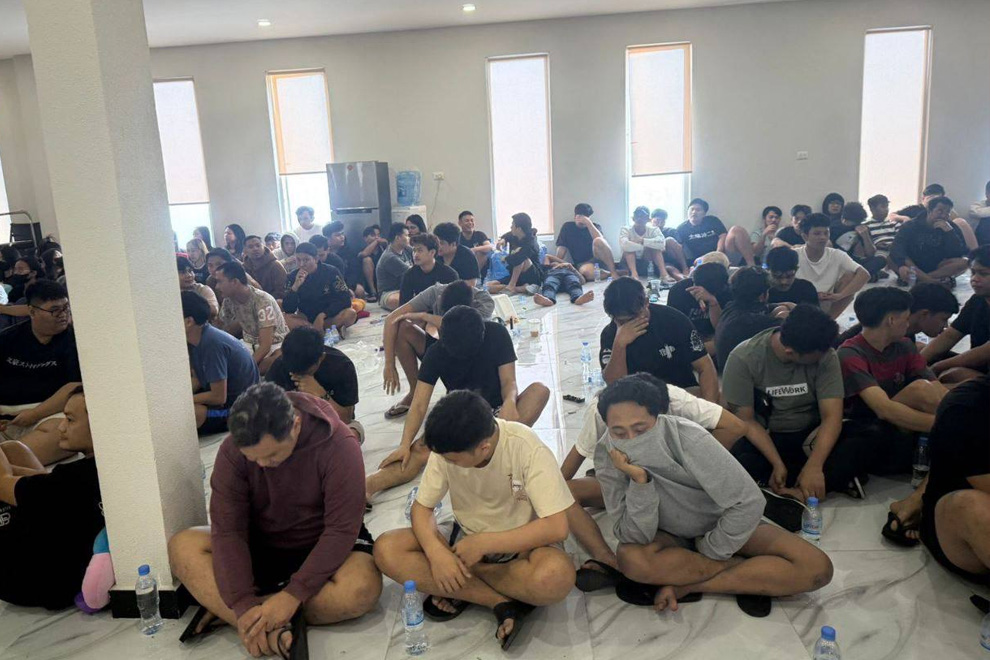Phnom Penh, Cambodia — In a sweeping nationwide operation, Cambodian authorities arrested more than 1,000 individuals this week—including 75 Taiwanese nationals—linked to online scam operations deeply entangled with human trafficking and forced labor.
The large-scale crackdown, ordered by Prime Minister Hun Manet, targeted what he described as “cybercrime sweatshops.” In a statement on Tuesday, the Prime Minister directed law enforcement and military units to take decisive action against online scams, warning that failure to act could result in disciplinary measures or dismissal of officials.
Cambodia has become a focal point in Southeast Asia’s growing online fraud industry, which has drawn international concern. According to the United Nations, the region has become a global hotspot for digital scams, with organized crime groups exploiting social media platforms to run romance and investment fraud schemes. Global losses from such scams are estimated to reach US$40 billion annually (approximately NT$1.177 trillion).
Over a span of three days, Cambodian police raided scam hubs across the country, including Phnom Penh, the border city of Poipet, and the port city of Sihanoukville—locations long known to host compounds operated by criminal networks.
In addition to the Taiwanese nationals, those arrested included 271 Indonesians, 213 Vietnamese, and 27 Chinese citizens. Many of the detainees reported being lured to Cambodia under false pretenses or trafficked into the country, only to find themselves trapped in high-pressure scam operations.
Photos released by the Cambodian National Police show evidence seized during the raids, such as computers, mobile devices, and fraudulent documents used in illicit schemes.
Human rights watchdog Amnesty International released a report last month detailing the rise of scam compounds across Cambodia. The report uncovered at least 53 sites operating under the control of criminal syndicates and documented widespread abuses, including forced labor, physical abuse, and unlawful detainment.
This week’s crackdown is the latest in a series of operations targeting the scam industry. In March, Cambodian police arrested 230 foreign nationals in Poipet, among them 119 Thai citizens who were later deported. In April, the United Nations Office on Drugs and Crime issued a global warning that these fraudulent operations are spreading to new regions, including South America, Africa, the Middle East, and the Pacific islands.
Cambodian officials say the campaign against online scams will continue as the government intensifies its efforts to dismantle transnational criminal networks exploiting vulnerable individuals.



